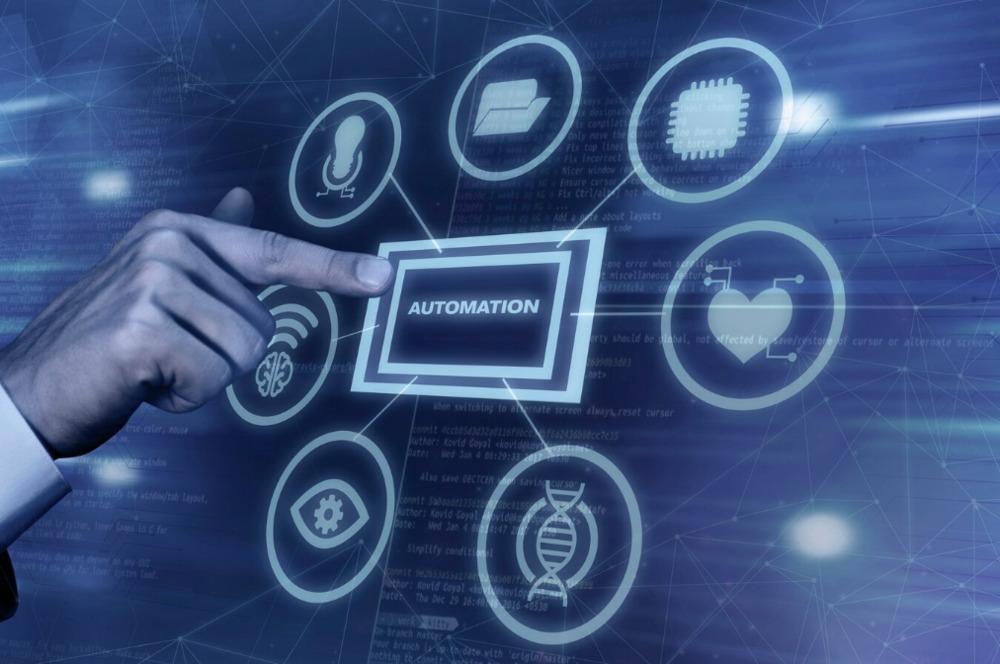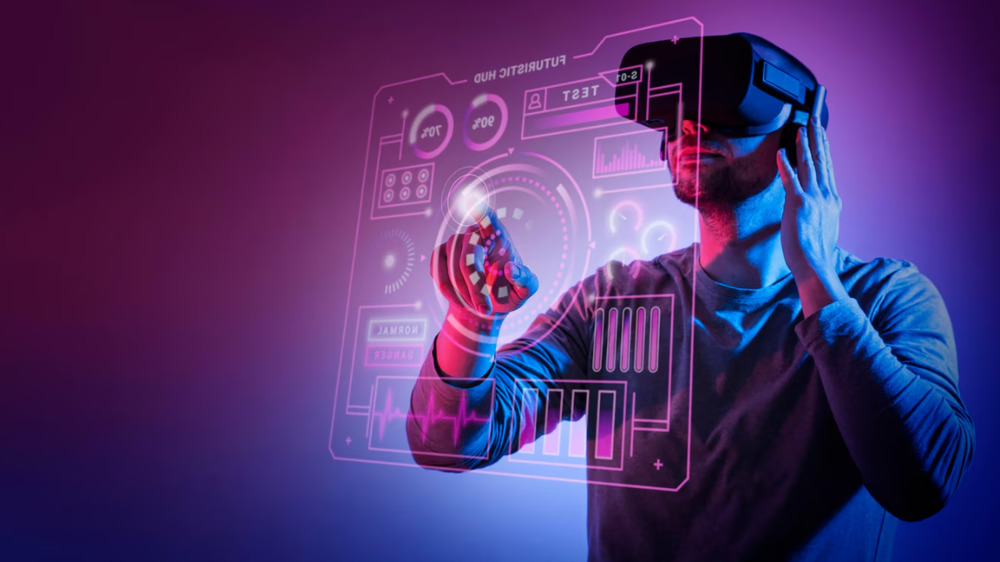Artificial Intelligence (AI) is no longer just a futuristic concept; it’s a powerful tool that is reshaping industries across the globe. From healthcare to finance, AI applications are enhancing efficiency, improving decision-making, and driving innovation. In this blog, we will explore ten real-world AI applications that are making waves in various sectors, backed by compelling statistics and clear tables to illustrate their impact. Let’s dive in! ?

1. Healthcare: Revolutionizing Patient Care
AI is transforming healthcare by enabling predictive analytics, personalized medicine, and improved diagnostics. According to a report by Accenture, AI applications in healthcare could save the industry up to $150 billion annually by 2026.
| Application | Impact on Healthcare | Estimated Savings (Billion $) |
|---|---|---|
| Predictive Analytics | Early disease detection | 50 |
| Virtual Health Assistants | Improved patient engagement | 30 |
| Administrative Workflow Automation | Reduced operational costs | 20 |
| Personalized Medicine | Tailored treatment plans | 25 |
| Total Savings | 150 |
AI-driven tools like IBM Watson Health are already assisting doctors in diagnosing diseases more accurately and quickly. ?
2. Finance: Enhancing Risk Management
In the finance sector, AI is being used for fraud detection, risk assessment, and algorithmic trading. A study by McKinsey found that AI could potentially increase profitability in the banking sector by 30% by 2030.
| Application | Impact on Finance | Estimated Profit Increase (%) |
|---|---|---|
| Fraud Detection | Reduced losses | 20 |
| Risk Assessment | Better decision-making | 10 |
| Algorithmic Trading | Increased efficiency | 15 |
| Customer Service Chatbots | Enhanced customer experience | 5 |
| Total Profit Increase | 30 |
Companies like PayPal are already leveraging AI to monitor transactions in real-time, significantly reducing fraud rates. ?
3. Retail: Personalizing Customer Experience
AI is revolutionizing the retail industry by providing personalized shopping experiences and optimizing inventory management. According to a report by Salesforce, 70% of consumers now expect personalized experiences, and AI is key to delivering that.
| Application | Impact on Retail | Customer Satisfaction Increase (%) |
|---|---|---|
| Personalized Recommendations | Increased sales | 25 |
| Inventory Management | Reduced stockouts | 15 |
| Chatbots for Customer Service | Faster response times | 20 |
| Dynamic Pricing | Optimized pricing | 10 |
| Total Satisfaction Increase | 70 |
Retail giants like Amazon use AI algorithms to analyze customer behavior and recommend products, leading to higher conversion rates. ?
4. Manufacturing: Streamlining Production
In manufacturing, AI is enhancing production efficiency through predictive maintenance and quality control. A report by PwC estimates that AI could contribute up to $15.7 trillion to the global economy by 2030, with manufacturing being a significant beneficiary.
| Application | Impact on Manufacturing | Estimated Economic Contribution (Trillion $) |
|---|---|---|
| Predictive Maintenance | Reduced downtime | 6.5 |
| Quality Control | Improved product quality | 4.0 |
| Supply Chain Optimization | Enhanced logistics | 3.0 |
| Robotics Automation | Increased productivity | 2.2 |
| Total Contribution | 15.7 |
Companies like Siemens are already implementing AI-driven robots to streamline their production lines, resulting in significant cost savings. ⚙️
5. Transportation: Optimizing Logistics
AI is playing a crucial role in the transportation industry by optimizing routes and improving safety. According to a report by the International Transport Forum, AI could reduce traffic accidents by 90% by 2050.
| Application | Impact on Transportation | Safety Improvement (%) |
|---|---|---|
| Route Optimization | Reduced fuel consumption | 30 |
| Autonomous Vehicles | Enhanced safety | 90 |
| Predictive Maintenance | Fewer breakdowns | 40 |
| Traffic Management | Improved flow | 25 |
| Total Safety Improvement | 90 |
Companies like Tesla are at the forefront of this revolution, developing self-driving technology that promises to make roads safer. ?
6. Agriculture: Boosting Crop Yields
AI is transforming agriculture by enabling precision farming, which optimizes crop yields and reduces waste. According to a report by MarketsandMarkets, the AI in agriculture market is expected to grow from $1 billion in 2020 to $4 billion by 2026.
| Application | Impact on Agriculture | Estimated Growth (Billion $) |
|---|---|---|
| Precision Farming | Increased yields | 2.0 |
| Crop Monitoring | Early pest detection | 1.5 |
| Automated Irrigation | Water conservation | 0.5 |
| Supply Chain Optimization | Reduced waste | 0.5 |
| Total Growth | 4.0 |
Farmers are using AI-driven drones and sensors to monitor crop health, leading to more efficient farming practices. ?
7. Education: Personalizing Learning
AI is making strides in education by personalizing learning experiences and automating administrative tasks. A report by HolonIQ predicts that AI in education will reach $6 billion by 2025.
| Application | Impact on Education | Estimated Market Growth (Billion $) |
|---|---|---|
| Personalized Learning | Improved student outcomes | 2.5 |
| Administrative Automation | Reduced workload | 1.5 |
| AI Tutors | Enhanced learning support | 1.0 |
| Data Analytics | Better decision-making | 1.0 |
| Total Growth | 6.0 |
Platforms like Coursera are already using AI to tailor courses to individual learning styles, enhancing the educational experience. ?
8. Energy: Enhancing Efficiency
AI is playing a pivotal role in the energy sector by optimizing energy consumption and improving grid management. According to a report by the International Energy Agency, AI could help reduce global energy consumption by 10% by 2030.
| Application | Impact on Energy | Estimated Reduction in Consumption (%) |
|---|---|---|
| Smart Grids | Improved efficiency | 5 |
| Predictive Maintenance | Reduced outages | 3 |
| Energy Management Systems | Optimized usage | 2 |
| Renewable Energy Integration | Enhanced reliability | 1 |
| Total Reduction | 10 |
Companies like Google are using AI to manage their data centers more efficiently, resulting in significant energy savings. ⚡
9. Telecommunications: Improving Network Management
AI is transforming telecommunications by enhancing network management and customer service. A report by Juniper Research estimates that AI could save telecom operators $1.2 billion annually by 2024.
| Application | Impact on Telecommunications | Estimated Savings (Billion $) |
|---|---|---|
| Network Optimization | Improved service quality | 0.5 |
| Predictive Maintenance | Reduced downtime | 0.4 |
| Customer Service Automation | Enhanced support | 0.3 |
| Fraud Detection | Reduced losses | 0.1 |
| Total Savings | 1.2 |
Telecom companies like AT&T are already leveraging AI to enhance their network performance and customer experience. ?
10. Real Estate: Streamlining Transactions
AI is revolutionizing the real estate industry by streamlining transactions and providing market insights. According to a report by Zillow, AI could increase efficiency in real estate transactions by 20% by 2025.
| Application | Impact on Real Estate | Efficiency Increase (%) |
|---|---|---|
| Market Analysis | Better pricing strategies | 10 |
| Virtual Tours | Enhanced buyer experience | 5 |
| Transaction Automation | Reduced paperwork | 5 |
| Predictive Analytics | Improved investment decisions | 5 |
| Total Efficiency Increase | 20 |
Real estate platforms like Zillow are using AI to provide users with personalized property recommendations, making the buying process smoother. ?
Conclusion
The impact of AI across various industries is profound and far-reaching. As we continue to embrace these technologies, the potential for innovation and efficiency is limitless. From healthcare to real estate, AI is not just a trend; it’s a transformative force that is reshaping the way we live and work. ?
For more insights on AI applications, you can explore resources like McKinsey and Accenture. The future is bright, and AI is leading the way!



